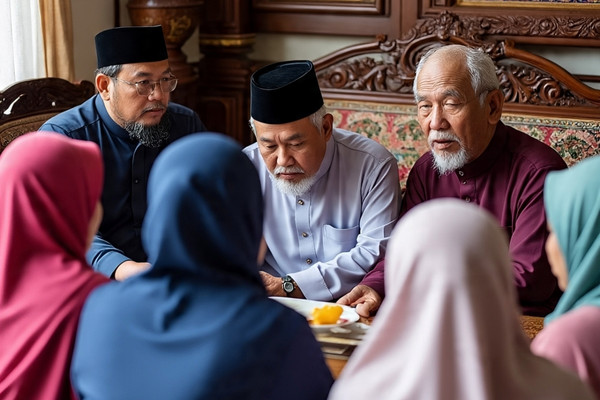The situation of estate planning in Malaysia has been what I would call a national crisis. Throughout my daily work routine, I meet families who are ‘stuck’, not just emotionally, but financially, because their loved ones didn’t leave a clear estate plan behind.
As a CFP® professional and Islamic Estate Planner currently pursuing my PhD in this very topic, I’ve seen how estates left behind are often not claimed.
Not having a comprehensive estate plan indeed leaves behind unresolved inheritance issues and can leave lasting consequences for our loved ones.
The scale of the problem is staggering: nearly RM65 billion in estate assets remain frozen in Malaysia. This isn’t just a legal or administrative issue; it is a silent national crisis that delays wealth transfer, strains families, and even impacts our economy.
Let’s spend some time to understand some of the reasons why estates are being frozen and what can we do about it.
Estate planning, a.k.a. having a will or wasiat, is not just about performing our last responsibility for our loved ones, but it can also be seen as a national duty.
Why Are Estates Being Frozen?
There’s no single reason. Frozen estates in Malaysia result from a mix of legal complexity, cultural and behavioural hesitation and a lack of awareness.
1. A Complex Legal System
Malaysia operates under both civil and Syariah laws. When it comes to inheritance, this dual system often causes confusion about which legal route to take. These bottlenecks can delay estate distribution for years.
2. Cultural Sensitivities Around Death
In many Malaysian households, especially within the Muslim community, talking about death and inheritance feels taboo. Planning ahead can be seen as inviting misfortune or even a lack of faith.

3. Low Awareness of Islamic Estate Planning
Islam offers clear guidance on faraid (Islamic inheritance), but tools like wasiat (Islamic wills) or hibah (gifts during one’s lifetime) are still underutilised. Many simply don’t know how to use these tools legally or effectively.
4. Lack of a Central Digital Platform
Even when families are ready to act, they hit another wall: paperwork. Documents go missing. Agencies don’t sync. Without a central platform to manage it all, estate management becomes a frustrating maze.
What’s the Cost of Inaction?
When estates are frozen, families have no choice but to wait, sometimes decades, to access homes, savings, or businesses they are legally entitled to. This stagnation not only harms individual families but also slows down economic activity and wealth distribution across generations.
The Path Forward: Technology Meets Tradition
We can’t rely on old methods to solve this modern problem. To unlock frozen estates, I feel we need to combine innovation with empathy.

Below are some ideas. While some require national efforts, there are still things we can do on an individual or group basis.
1. A Centralised Digital Estate Platform
Imagine a secure online hub where families can manage, store, and update estate documents—integrated with legal, Syariah, and government agencies. It would reduce human error, streamline approvals, and ease cross-agency coordination.
2. Artificial Intelligence (AI) for Estate Forecasting and Document Matching
Everyone’s circumstances are different. So does our will or wasiat. A personalised estate plan should be done that best meets our wishes and matches our financial situation, no matter how big or small.
AI could then be used to help us flag missing documents, estimate estate values, and even guide users on legal and religious compliance steps, saving time and reducing costly mistakes.
3. Cultural Communication Strategies
Tech can’t succeed without trust. We must educate communities using the language of faith, family, and future, through stories, examples, and relatable campaigns that normalise talking about death and planning for it.
4. Cross-Training for Legal and Religious Experts
To truly change the system, professionals must evolve. Lawyers, estate planners, and Syariah advisors should work together across disciplines to provide holistic, informed support.
A New Era in Estate Planning
For me, this is more than just professional interest; it’s a personal mission. My ongoing research focuses on how we can bridge tradition and technology to solve the estate planning puzzle in Malaysia.
Because this isn’t just about documents. It is about preserving dignity, protecting families, and transferring values along with wealth.
Let’s Start Your Legacy Conversation
If you’re unsure how to start planning or want to make sure your legacy respects both civil and Islamic principles, I’d love to help.
Reach out for a one-on-one conversation. Estate planning doesn’t have to be intimidating. Together, we can make it simple and meaningful.
Click on the Whatsapp button on the bottom right to reach out to me.
